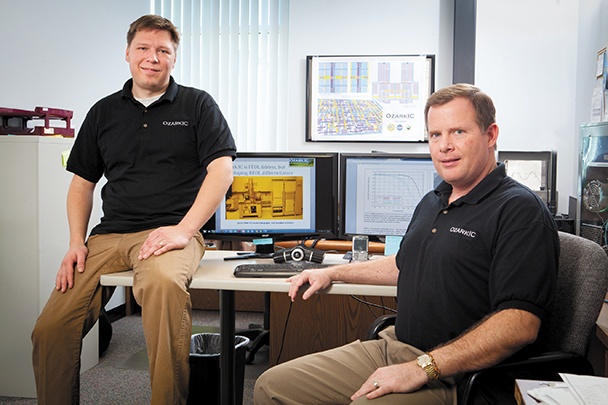NASA Enlists Ozark IC to Build Imager for Extreme Temps
by June 6, 2016 12:00 am 408 views

Ozark Integrated Circuits Inc., a University of Arkansas-affiliated tech company, has been awarded about $750,000 from NASA to build an imager microchip prototype that can withstand temperatures up to 930 degrees and down to minus 330 degrees.
When completed, it will be used for planetary exploration and Earth observation from space, such as ozone layer monitoring or oil spill detection, according to a UA press release.
The use of silicon carbide means the imager can operate at low voltage over a very wide temperature range, according to the press release. That makes it well-suited for exploration that requires space-borne instruments capable of measuring light in the ultraviolet spectrum.
Two examples are NASA’s Discovery and New Horizons missions, which intend to image planets from orbit or on the surface, and those proposed for Venus, where the imager would need to operate at nearly 930 degrees, according to the release.
“The imager we’re creating has significantly higher responsitivity, or ability to turn light into signal, than the state of the art and can integrate sensors and readout electronics into a single chip, which will improve performance and reduce cost,” said Matt Francis, Ozark IC president and CEO.
Last fall, NASA funded a feasibility study for the project (phase I), and Ozark IC created a simulation model based on extensive measurements and characterization of a sensor the team previously designed and built, Francis said.
With Phase II, the current grant, Ozark IC will complete the physical design of the imager, build it and test it, Francis said.
The team plans to complete the design phase this fall and will begin testing the imager in hardware sometime next year.
Ozark IC was recently awarded another phase I project in the area of silicon-carbide integrated circuits and previously completed three phase I projects, with grants less than $125,000 each.
Ozark IC is located at Arkansas Research and Technology Park in Fayetteville.
